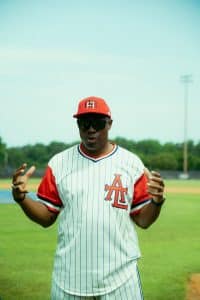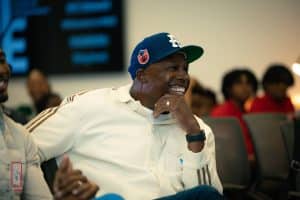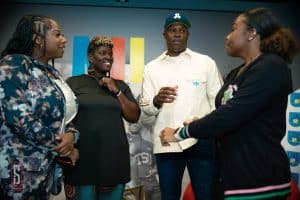
High school baseball in Georgia has officially kicked off, bringing both excitement and, for some, the harsh reality of not making the team. As the tryout dust settles, it is crucial to recognize the pain that comes with rejection. Here, we will delve into the significance of this experience, emphasizing the importance of turning disappointment into a stepping stone for personal growth.
For high school seniors, getting cut from the team can be devastating, especially if it was their last chance to make the roster. But the experience of rejection is an integral part of life, extending beyond the baseball field. It mirrors the challenges we encounter when looking for a job, a promotion or taking a relationship to the next level.
It’s about stepping up to the plate, knowing that the answer might not always be a yes.
In essence, knowledge is a combination of information and experience. While the pain of rejection is real, it offers a valuable experience that can better prepare individuals for future tryouts or life’s challenges. We must fortify the bridge before reaching it, ensuring we can cross it confidently, even if the answer is not what we hoped for.
To navigate the journey from rejection to success, I created a phased approach:
1. August-October: Assessment Phase
Trying new things to understand personal strengths and weaknesses.
2. November-January: Build Phase
Building habits and strength based on what works from the assessment phase.
3. February-April: Conversion Phase
Converting habits into skills, honing abilities that can withstand the pressures of tryouts and life.
4. May-July: Maintenance Phase
Maintaining developed skills, ensuring they stay sharp and ready for the next opportunity.
Unfortunately, many parents and players underestimate the value of proactive baseball development. The misconception that talent is the ceiling needs to shift—talent is merely the floor. Habits, formed through consistent practice and skills, honed under stress, are the keys to success. Being proactive means embracing the reality that success requires continuous effort beyond tryout season.
As we reflect on the pain of not making the cut, remember that this time next year presents another opportunity. In life, every day is an opportunity for success. The key is being ready—ready to seize the moment, to demonstrate your skills, and to overcome challenges.
Questions for Daily Success
To gear up for success every day, consider these five questions:
- What can I learn from today’s challenges?
- How can I turn setbacks into opportunities for growth?
- Am I building habits that contribute to my long-term success?
- In what ways can I apply my skills beyond the baseball field?
- What proactive steps can I take today to enhance my readiness for future opportunities?
The pain of not making the baseball team is a momentary setback that, with the right perspective, can pave the way for a brighter future. By embracing the phases of development, being proactive in skill-building, and understanding that success is an ongoing journey, players can emerge stronger, more resilient, and better prepared for the opportunities life presents.
For more information, visit L.E.A.D. Center for Youth today.
If you found this inspiring and thought-provoking, or if you have any questions, comments or concerns, add me on Discord and let’s go deeper.
C.J. Stewart has built a reputation as one of the leading professional hitting instructors in the country. He is a former professional baseball player in the Chicago Cubs organization and has also served as an associate scout for the Cincinnati Reds. As founder and CEO of Diamond Directors Player Development, C.J. has more than 22 years of player development experience and has built an impressive list of clients, including some of the top young prospects in baseball today. If your desire is to change your game for the better, C.J. Stewart has a proven system of development and a track record of success that can work for you.


 As we head into February, I find it fitting to engage in a more formal conversation about the evolution of my training regimen and the significance of practicing under pressure.
As we head into February, I find it fitting to engage in a more formal conversation about the evolution of my training regimen and the significance of practicing under pressure.



